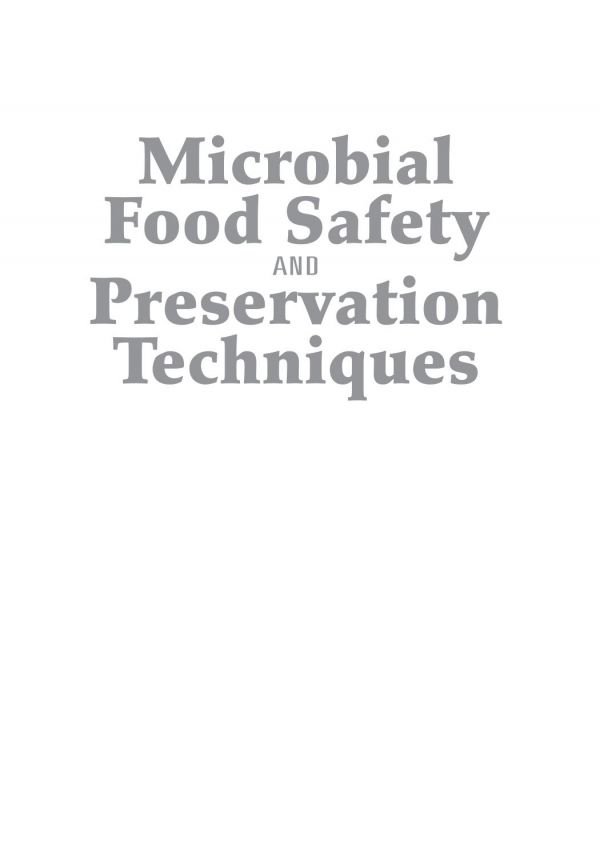Product desciption
Microbial Food Safety And Preservation Techniques Farshad Darvishi Harzevili Hongzhang Chen by Farshad Darvishi Harzevili; Hongzhang Chen 9781466593060, 9781466593077, 9781482245202, 1466593067, 1466593075, 1482245205 instant download after payment.
''Preface Microbial biotechnology is a technology based on microbiology. Microbial biotechnology is the use of microorganisms and their derivatives to make or modify specific products or processes. Microbial biotechnology is closely related to applied and industrial microbiology. Microbial biotechnology is sometimes considered synonymous with modern industrial microbiology. The microorganisms used in industrial processes are natural, laboratory-selected mutants, or genetically engineered strains to obtain an economically valuable product or activity on a commercial and large scale. Natural and mixed microbial strains were used in ancient or traditional industrial microbiology, whereas pure or mutant microbial strains are used in classic industrial microbiology. The use of genetically engineered microbial strains began with modern industrial microbiology or microbial biotechnology. Microbial biotechnology is an interdisciplinary field, and successful development in this field requires major contributions a wide range of disciplines, particularly microbiology, biochemistry, genetics, molecular biology, chemistry, chemical engineering, mathematics, computer technology, and so on. Recently, new methods of metabolic engineering, industrial systems biology, bioinformatics, and X-omics science such as genomics, metagenomics, transcriptomics, proteomics, metabolomics, fluxomics, and even nanobiotechnology, have been used to find and modify microorganisms with industrial capacity and their valuable products. In general, the creation of products in industrial microbiology and microbial biotechnology are typically investigated under upstream processes, fermentation processes, and downstream processes''--Provided by publisher.
Abstract: ''Preface Microbial biotechnology is a technology based on microbiology. Microbial biotechnology is the use of microorganisms and their derivatives to make or modify specific products or processes. Microbial biotechnology is closely related to applied and industrial microbiology. Microbial biotechnology is sometimes considered synonymous with modern industrial microbiology. The microorganisms used in industrial processes are natural, laboratory-selected mutants, or genetically engineered strains to obtain an economically valuable product or activity on a commercial and large scale. Natural and mixed microbial strains were used in ancient or traditional industrial microbiology, whereas pure or mutant microbial strains are used in classic industrial microbiology. The use of genetically engineered microbial strains began with modern industrial microbiology or microbial biotechnology. Microbial biotechnology is an interdisciplinary field, and successful development in this field requires major contributions a wide range of disciplines, particularly microbiology, biochemistry, genetics, molecular biology, chemistry, chemical engineering, mathematics, computer technology, and so on. Recently, new methods of metabolic engineering, industrial systems biology, bioinformatics, and X-omics science such as genomics, metagenomics, transcriptomics, proteomics, metabolomics, fluxomics, and even nanobiotechnology, have been used to find and modify microorganisms with industrial capacity and their valuable products. In general, the creation of products in industrial microbiology and microbial biotechnology are typically investigated under upstream processes, fermentation processes, and downstream processes''--Provided by publisher


